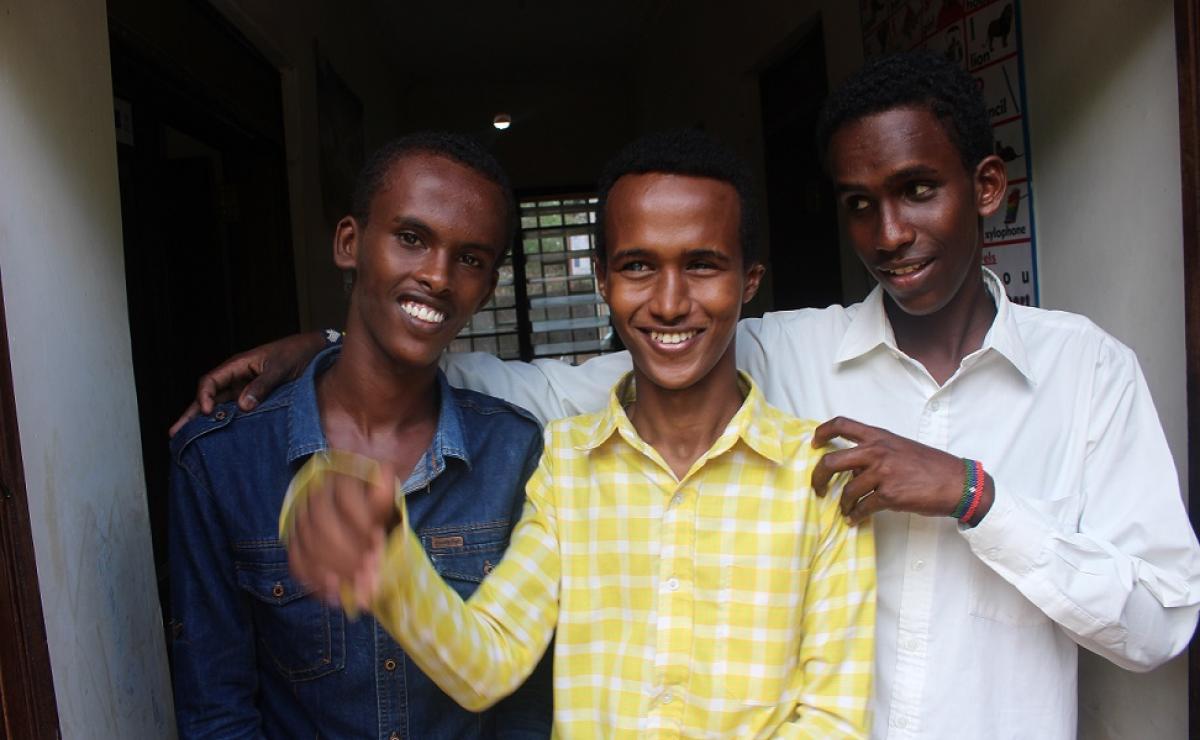Zakaria tops in KCPE despite visual impairment

Following the announcement of the Kenya Certificate of Primary Education (KCPE) results, the top performer among learners with disability in Dadaab, Kenya is 19-year-old Zakaria Abdikadir. “I am very happy. When I received the good news that I had scored 322 marks out of 500 an that I was the best among special needs learners, I jumped and celebrated with great happiness. My parents also prepared a special meal to celebrate my success,” he says.
Zakaria is among 315,275 other Kenyan candidates (out of 905,329 nationally) who scored between 300 and 400 marks out of 500 marks. This means his performance sets him among the top third of the leading candidates in Kenya. Overall, the best student nationally in the 2021 KCPE was Magata Bruce Mackenzie, of Gilgil Hills Academy, who scored 428 marks out of 500.
People living with disabilities face three main challenges, according to Zakaria. There are widespread negative attitudes mostly prevalent among communities where there is little advocacy and representation from PWDs. There is limited access to special tools developed and customized for use by PWDs. Thirdly, there are scarce opportunities for leadership reserved for PWDs. This means that their issues mostly remained unresolved since their voices cannot be heard.
“From my own personal experience, when I decided to vie for leadership positions within the school, such as classroom prefect, I encountered stiff opposition from students who felt that a student with visual impairment could not lead the rest,” he says. In many situations, people with visible impairments are often discriminated against whenever leadership opportunities are available.
“Education is power. If you want to achieve something meaningful in life, you must first have an education, without which you cannot succeed. Education is the most effective process for empowering people living with disabilities,” he says.
“Regardless of a persons physical or mental condition, whether able or having disabilities, we all need an education in order to have an impact on our communities,” he says.
Discipline and consistency for success
Zakaria recounts the habits he adopted in order to improve his academic performance and final results. He woke up early in the morning to prepare his classroom activities and study his lessons. In addition, he went to school early in the morning. He prepared thoroughly for the examination, using braille papers for revision and consulting his teachers and classmates.
“My teachers helped me throughout the preparation period, seeing that I had a good potential of performing well in the final examinations. I also formed revision teams with other classmates and we established a revision program involving practicing and revisiting lower class syllabus, revising past examination papers and guidance from teachers. I thank the teachers, agencies including Lutheran World Federation, UNHCR and other partners supporting education for learners with disabilities in Dadaab,” he says.
Success in the KCPE has given Zakaria a new boost in self-confidence. He looks forward to more successes in his life. His plan is to join a good secondary school and thereafter go to university. His dream school is Thika School for the Blind, a top national school with special facilities for children with visual impairment. Still he is happy to join any other school that he is selected to join and plans to make use of available resources in order to further his dreams.
Follow the story on our social media platforms
Facebook: https://bit.ly/3KaKCe7
Twitter: https://bit.ly/3KdKx9u

